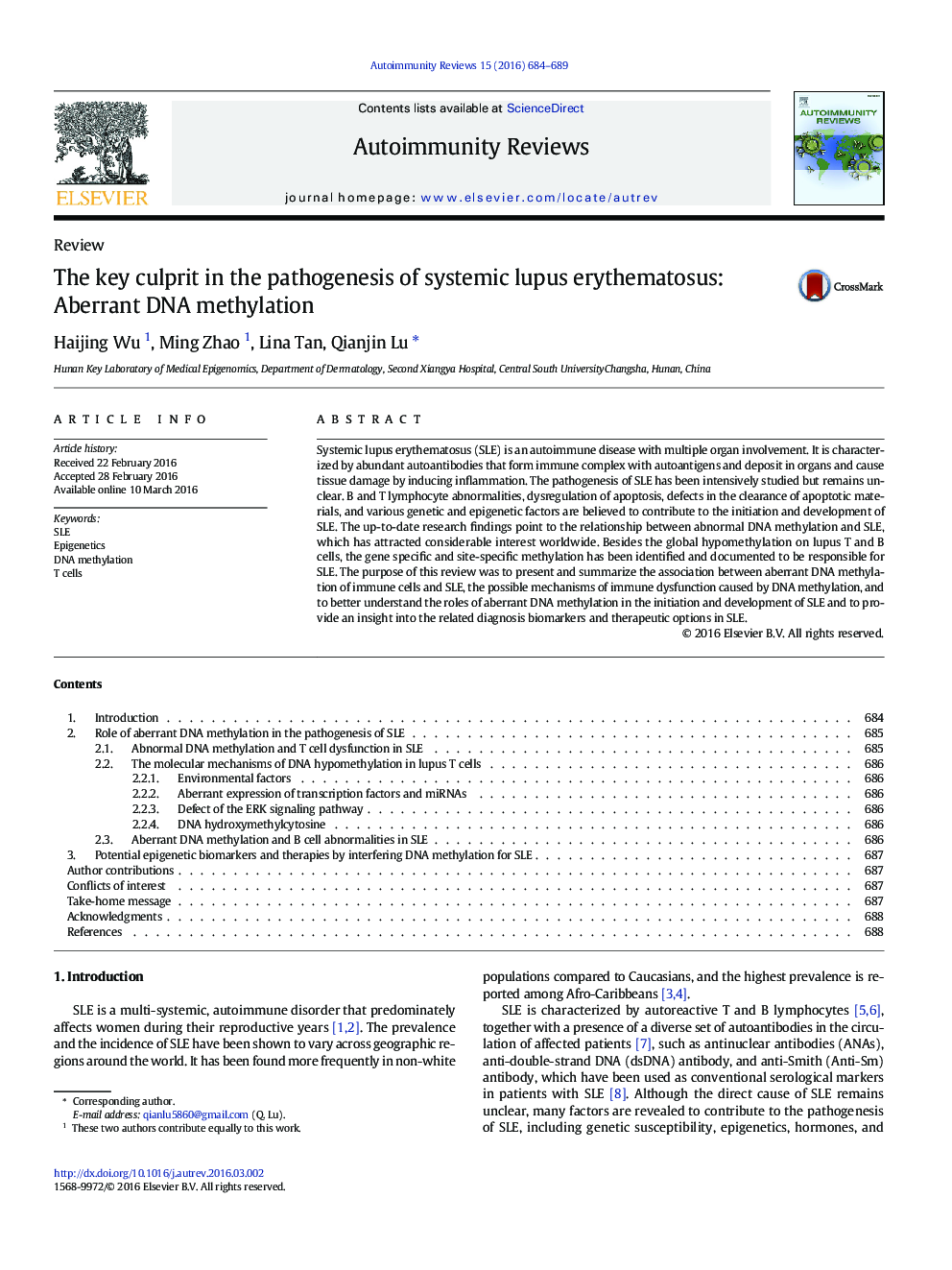| Article ID | Journal | Published Year | Pages | File Type |
|---|---|---|---|---|
| 3341344 | Autoimmunity Reviews | 2016 | 6 Pages |
Systemic lupus erythematosus (SLE) is an autoimmune disease with multiple organ involvement. It is characterized by abundant autoantibodies that form immune complex with autoantigens and deposit in organs and cause tissue damage by inducing inflammation. The pathogenesis of SLE has been intensively studied but remains unclear. B and T lymphocyte abnormalities, dysregulation of apoptosis, defects in the clearance of apoptotic materials, and various genetic and epigenetic factors are believed to contribute to the initiation and development of SLE. The up-to-date research findings point to the relationship between abnormal DNA methylation and SLE, which has attracted considerable interest worldwide. Besides the global hypomethylation on lupus T and B cells, the gene specific and site-specific methylation has been identified and documented to be responsible for SLE. The purpose of this review was to present and summarize the association between aberrant DNA methylation of immune cells and SLE, the possible mechanisms of immune dysfunction caused by DNA methylation, and to better understand the roles of aberrant DNA methylation in the initiation and development of SLE and to provide an insight into the related diagnosis biomarkers and therapeutic options in SLE.
